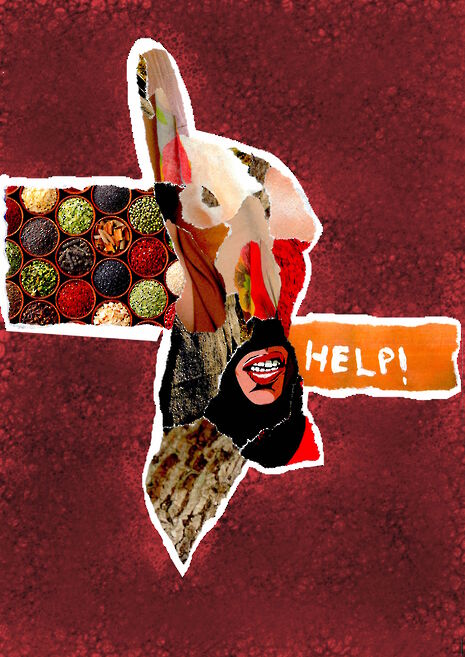Eating disorders: bringing down the false dichotomy
All forms of disordered eating deserve to be taken seriously, writes Sofia Weiss

Eating disorders have often been viewed as a binary issue. Only two distinct syndromes, anorexia nervosa and bulimia nervosa, are described in DSM-IV – the bible of mental health diagnoses. A residual category, eating disorder not otherwise specified (EDNOS), is the only alternative provided for all other disorders of eating. It proves lacklustre. After all, knowing precisely how to characterise and subdivide this large heterogeneous group proves a significant problem not only for experts in the field but for sufferers too. In recovery from my own eating disorder, I would argue that the usage of such discrete ‘boxes’ to categorise our condition is misguided. I am yet to meet someone who has lived through anorexia, who has not also succumbed to practices of eating sporadically and lacking abandon, with or without purging in any form. Our quest to maintain a semblance of control over our bodies – a proxy for self-worth – is more analogue than digital. Each morning, we wake up and our eating patterns are decided almost as if by the flip of a coin, with anorexia on one side, compulsive overeating on the other, and bulimia sandwiched in the middle. We do not, and cannot, control on which side we fall; it is the nature of our pathology.
“Eating disorders transcend the artificial boundaries we have enforced upon them”
Hence, when it comes to eating disorders, we are only just beginning to grasp that there is no definitive set of symptoms amongst all sufferers. Eating disorders transcend the artificial boundaries we have enforced upon them. They impact people of all races, ages, genders, weights, and body sizes – not just the size sub-zero stereotype our society is used to glamorising. In this context, I believe that our current diagnostics leave the person who is secretly struggling feeling hard-done-by. They do not provide sufficient room for the one who ‘eats normally’ in public, yet binges on a jar of peanut butter, jam, a loaf of bread, and a family bag of crisps, at night; who goes to sleep with a painfully aching stomach and overwhelming sentiments of guilt, shame, and self-loathing. Or the individual whose weight is ‘normal’ by standardised guidelines, and who is hence told that they cannot access services no matter how much they may be struggling, because they are not sufficiently under- or overweight. These people are ill too, and they deserve our recognition and support as much as any individual who is more visibly afflicted.
It is useful at this point to remind ourselves that eating disorders are not about ‘lacking willpower’ or being ‘shallow’. This is still a common misconception, and I have sometimes been given these labels by even those closest to me. I do not retain anger towards them. Our seemingly insane eating practices are horrifically difficult to understand, let alone empathise with. Nonetheless, I do try to educate others. Eating disorders anywhere on the spectrum are serious mental illnesses. No one would choose to binge until they feel physically ill, to purge and feel disgusted with themselves, to have constant thoughts about food and body, to lose friends and to isolate themselves, or to be unable to eat at a restaurant without feelings of severe anxiety and dread.
This article is for those who feel they do not fit the mould of an ‘eating disorder’, but who certainly know they endure disordered eating. Maybe you struggle with exercising despite illness and injury; you wish you could let yourself rest, but the anxiety around doing so feels totally unmanageable. Perhaps the tussle is with binging and purging. Perhaps you are exhausted and unable to stop, yet each time you tell yourself that it will be the last time, although it never is.
“Possibly, you experience both or none of these, but an entirely different constellation of symptoms. You are not alone”
Possibly, you experience both or none of these, but an entirely different constellation of symptoms. You are not alone, and your case should not be undervalued. Hopefully, as awareness and understanding of eating disorders increases, our means of treatment will begin to recognise this too
 Features / Should I stay or should I go? Cambridge students and alumni reflect on how their memories stay with them15 December 2025
Features / Should I stay or should I go? Cambridge students and alumni reflect on how their memories stay with them15 December 2025 News / Cambridge study finds students learn better with notes than AI13 December 2025
News / Cambridge study finds students learn better with notes than AI13 December 2025 News / Uni Scout and Guide Club affirms trans inclusion 12 December 2025
News / Uni Scout and Guide Club affirms trans inclusion 12 December 2025 Comment / The magic of an eight-week term15 December 2025
Comment / The magic of an eight-week term15 December 2025 News / News In Brief: Michaelmas marriages, monogamous mammals, and messaging manipulation15 December 2025
News / News In Brief: Michaelmas marriages, monogamous mammals, and messaging manipulation15 December 2025








